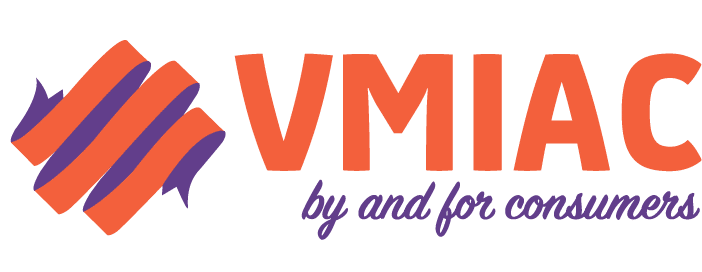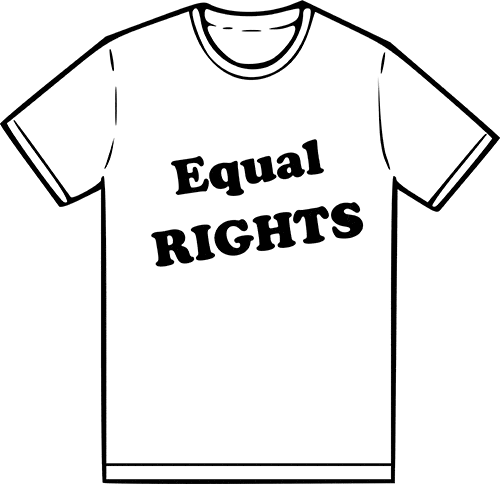
VMIAC is part of the international consumer/survivor rights movement that’s been growing since the late 1960s.
Some activism was recorded in the UK and America as far back as the 1800s.
The consumer/survivor movement is similar to movements by other people who have experienced systemic oppression and marginalisation, such as LGBTIQ people, women, people with disability and Aboriginal and Torres Strait Islander people.
Some of the issues we share include:
- Social, cultural and legal discrimination
- Harmful myths about us
- Severe socioeconomic and health disadvantage
- Being victims of violence and abuse
- Other people speaking on our behalf about ‘our best interests’
The consumer/survivor movement took off in the late 1960s alongside other civil rights movements.
One of the movement’s earliest leaders was Judi Chamberlin. The videos below feature Chamberlin and others.
Early consumer/survivor movement
The early consumer/survivor movement was influenced by other civil rights activities happening at the time, plus the impact of being forcibly institutionalised, forcibly medicated, and often facing extreme kinds of abuse and harm in those institutions.
Other influences included new critical ideas about mental illness by psychiatrists Thomas Szaz and R.D. Laing, sociologist Erving Goffman and philosopher and social theorist Michel Foucault.
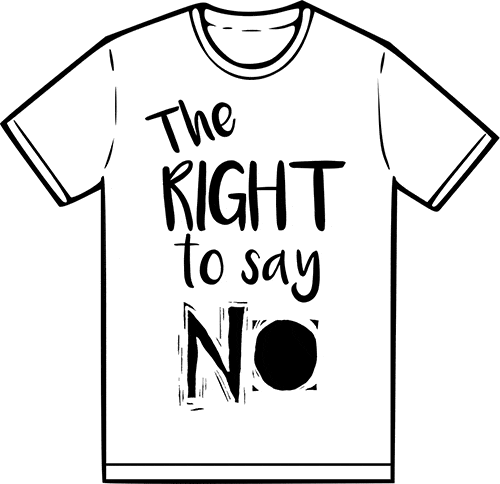
Learn more about our movement and history:
The consumer movement in Australia: A Memoir of an
old campaigner
By Merinda Epstein, 2013. Read more
On our own: Patient-controlled alternatives to the
mental health system.
By Judy Chamberlin, 1979. Chamberlin was a leader in our movement, and many people consider this book a critical part of our history. Chamberlin was a Mental Patients’ Liberation Front member in the USA. Published by McGraw-Hill.
Psychiatric Survivors movement, Wikipedia Read more
Did you know about Mad Pride?
People can find power in reclaiming words used to hurt them. This has been done in many movements, perhaps the most notable being the LGBTIQ movement reclaiming the word ‘queer’ from being an insult to being a collective badge of pride.
The Mad Pride movement draws on reclaiming language to bolster our pride and shared identity.
Mad Pride reclaims words like ‘mad’, ‘nutter’ and ‘psycho’ to stand for something positive.
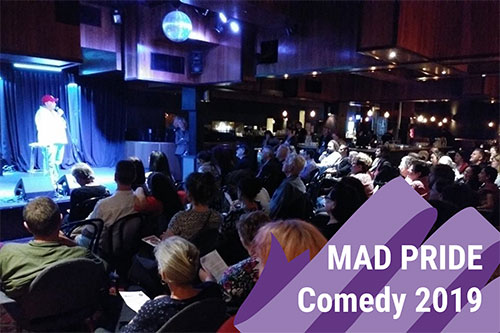
Mad Pride events celebrate our uniqueness with a political edge. Check out these links for more info:
From time to time, VMIAC hosts Mad Pride events, like the Mad Pride comedy event during the 2019 Melbourne Comedy Festival.
The consumer/survivor movement today
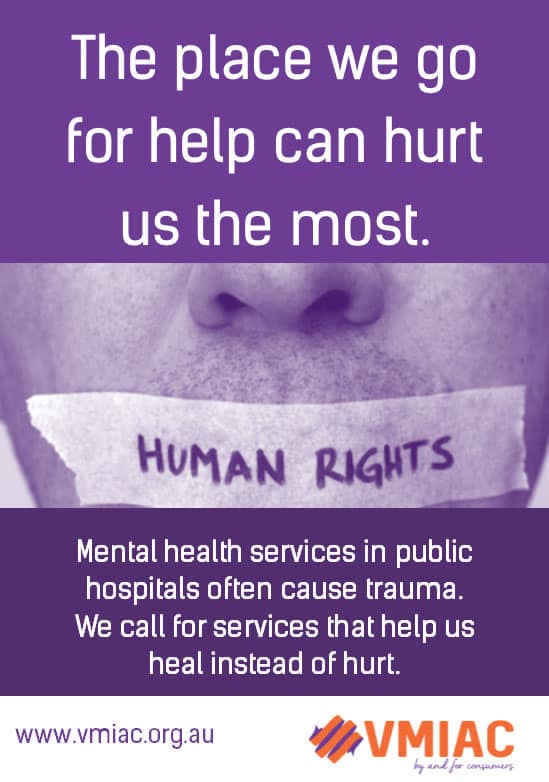
The consumer survivor movement continues to grow all around the world. These are some leading consumer/survivor organisations:
- National Empowerment Center
- Mind Freedom
- The Icarus Project
- National Survivor User Network
- Madness Radio
VMIAC is a proud participant in this movement, and we do our best to stand up for the issues that matter. Check out some of our campaign work to improve our rights:
Did you know about Mad Studies?
One of the most exciting developments in our movement today is the growth of Mad Studies, a new academic discipline.

Mad Studies is a bit like other academic disciplines that have developed in response to rights movements, where people with a lived experience lead academic thinking about making sense of that experience:
Read more about Mad Studies here: Mad Studies Network.
